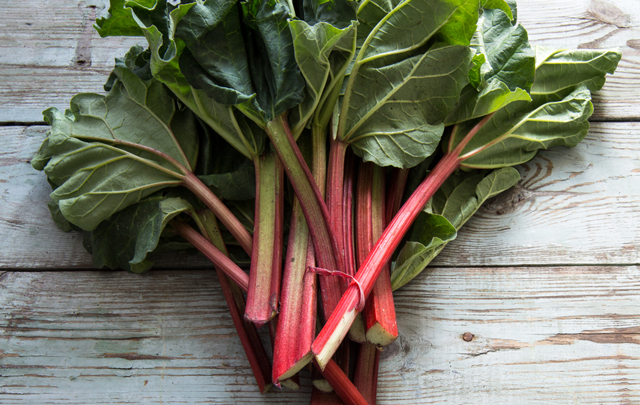Rhubarb can destroy cancer cells
02/11/2019 / By Ellaine Castillo

The extremely sour taste of rhubarbs might not appeal to everyone, but there are still many reasons to eat this unique vegetable. One of these is their ability to prevent cancer cell growth. In a study published in the journal Nature, scientists from Emory University found that an orange pigment in rhubarb called parietin has potent anticancer properties.
Primarily, parietin, which is also found in different forms of lichen, works as a protective agent against blue and ultraviolet light from the sun. However, the researchers found that this pigment effectively kills cancer cells. This was initially observed through in vitro investigations which showed that parietin treatment killed half of the leukemia cells in a study culture within 48 hours.
The findings of an in vivo experiment conducted in mice also supported these results. In this study, they used a more potent form of parietin called S3 and administered it in mice with lung cancer. After 11 days, the growth of lung cancer cells in treated mice was cut by a factor of three. What makes these results even more promising is that parietin was only lethal to cancer cells but not to healthy cells. This is a great advantage over conventional cancer treatments like chemotherapy and radiotherapy which also target healthy tissue. (Related: Chemotherapy revealed as toxic poison for every living cell in the human body: Mitochondrial dysfunction warning from researchers.)
How does parietin destroy cancer cells?
Researchers from Emory University were also able to determine the mechanism through which parietin works. Based on their observations, this pigment inhibits the production of an enzyme called 6-phosphogluconate dehydrogenase (6PDGD), which drives cancer growth. According to Professor Jing Chen, who is one of the authors of the study, cancer cells need a certain level of 6PDGD to grow. If the amount of this enzyme falls, the growth of cancer cells will decrease as well.
Chen added that this is “part of the Warburg effect,” which explains how cancer cells acquire energy. This was named after Otto Heinrich Warburg who was the first to observe that unlike healthy cells, cancer cells are fueled anaerobically by glycolysis and fermentation. This change in metabolism is believed to be the root cause of cancer mutation. By inhibiting 6PDGD production, parietin effectively stops part of the cancer metabolic chain, which leads to the starvation and death of cancer cells.
More reasons to eat rhubarb
Increasing your intake of rhubarbs can also bring you health benefits such as the following:
- Stronger bones — Rhubarbs are rich in vitamin K, which is important for bone formation and preventing osteoporosis. They also contain a decent amount of calcium, another crucial mineral for bone health.
- Weight loss — Eating rhubarbs can reduce bad cholesterol in your body. It also delivers large amounts of catechin that have been shown to boost metabolism, burn body fat, and promote weight loss.
- Healthier skin — Rhubarbs are packed with the natural antioxidant vitamin A. This nutrient is important for keeping your skin youthful and glowing since it protects against oxidative stress. Aside from this, rhubarbs have potent antibacterial and antifungal properties that protect you from infections.
- Reduced risk of Alzheimer’s — The vitamin K in rhubarbs is known for its protective effects against brain damage, which contributes to the development of Alzheimer’s. Moreover, rhubarbs can reduce brain inflammation that can lead to Alzheimer’s, stroke, and amyotrophic lateral sclerosis (ALS).
- Constipation relief — Rhubarbs can act as natural laxatives that can help with constipation. This benefit can be attributed to the presence of tannins, sennosides, and dietary fibers in the vegetable.
If you’d like to read more news stories and studies on other foods that can combat cancer, visit FoodCures.news.
Sources include:
Submit a correction >>
Tagged Under:
This article may contain statements that reflect the opinion of the author
RECENT NEWS & ARTICLES
COPYRIGHT © 2017 SUPER FOODS NEWS





















